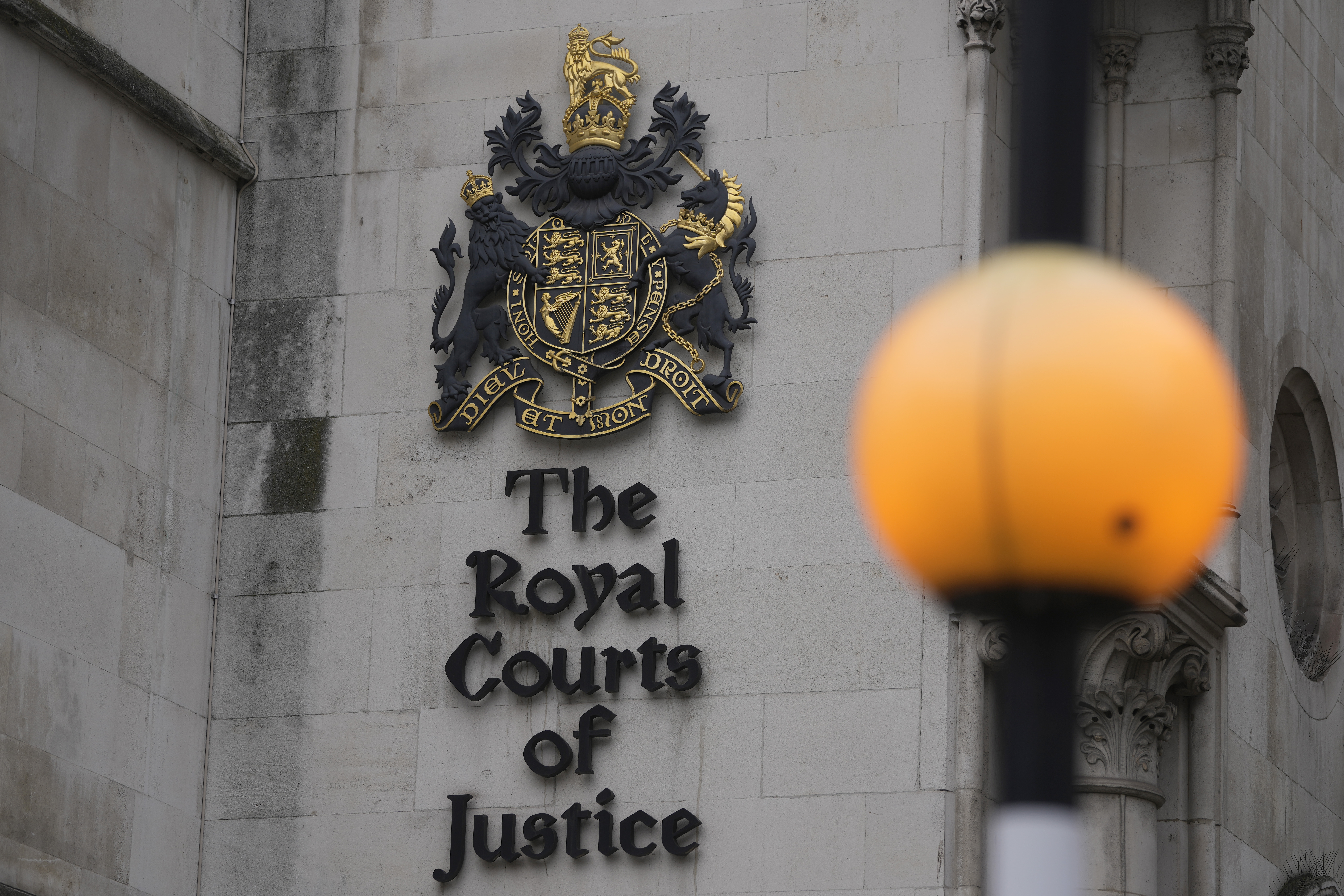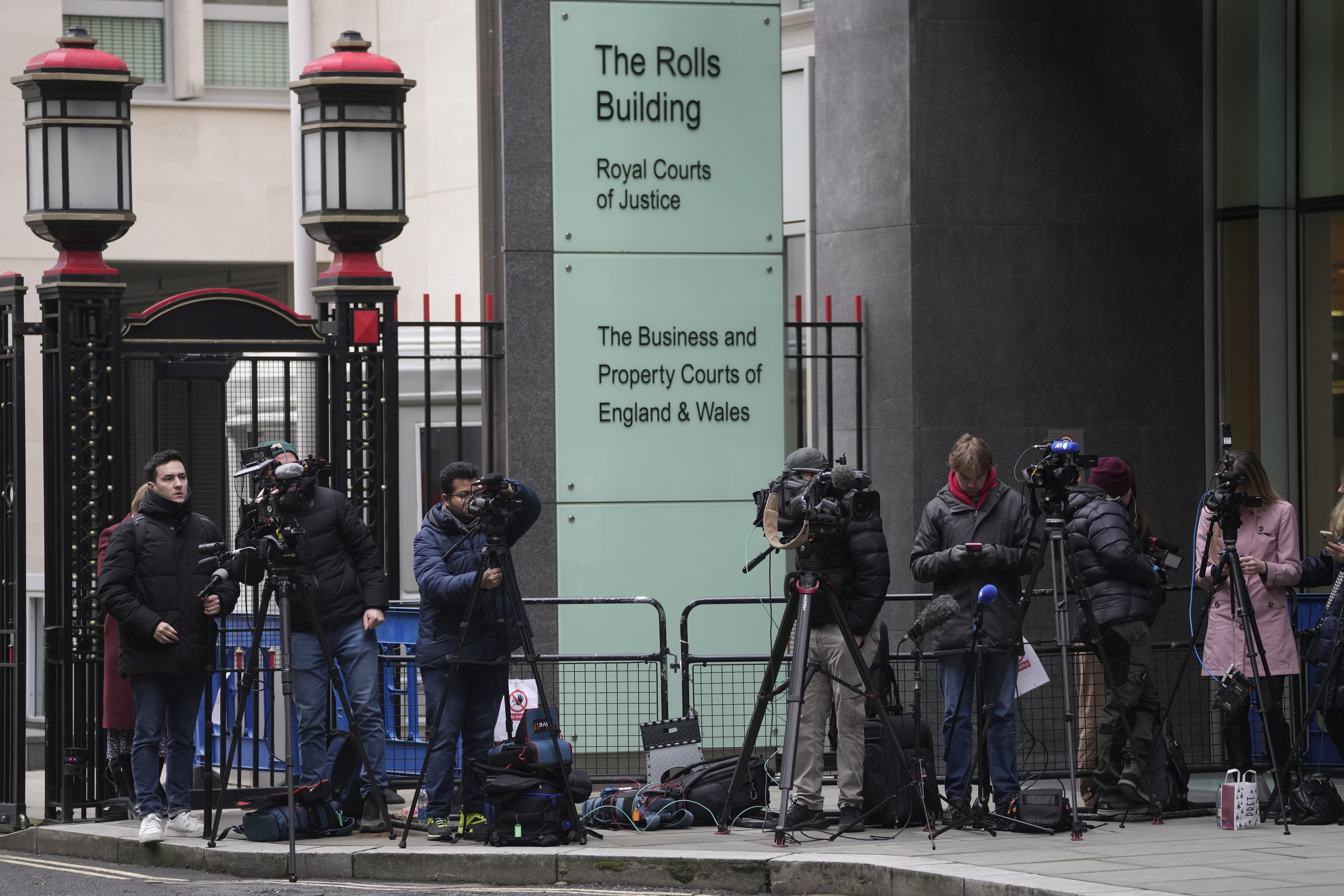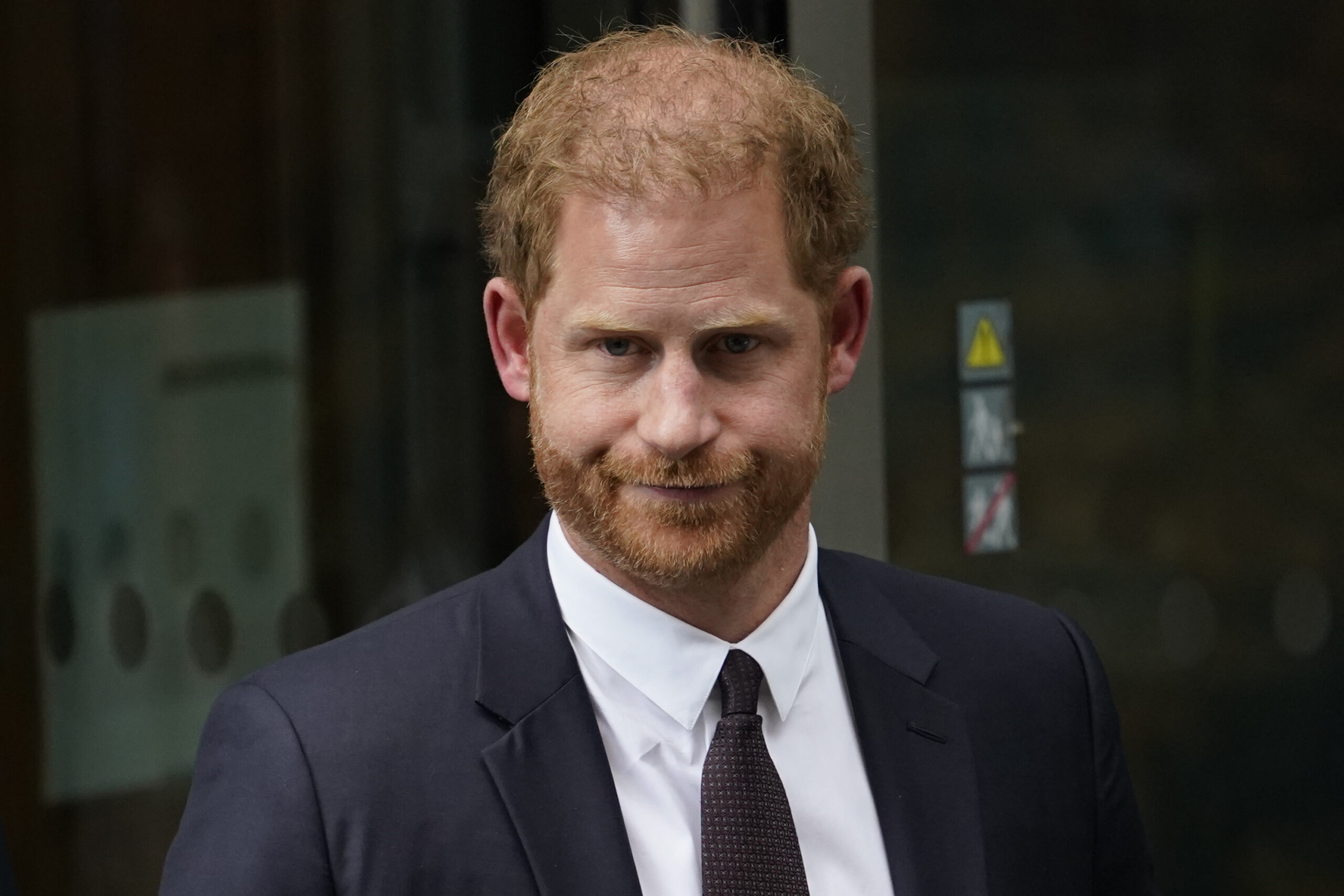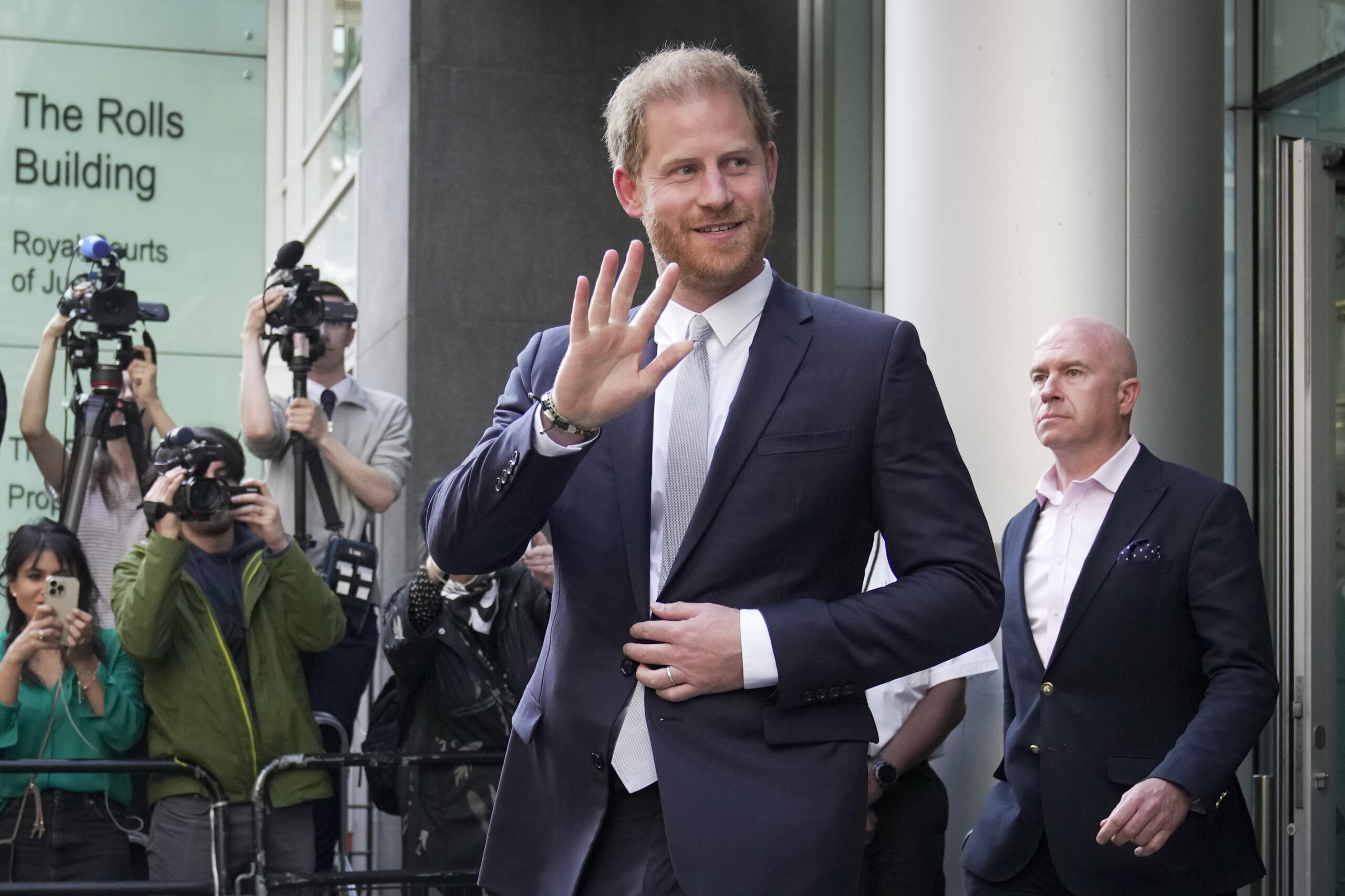LONDON (AP) — Prince Harry’s phone was hacked by journalists and private investigators working for the Daily Mirror who invaded his privacy by snooping on him unlawfully, a judge ruled Friday, delivering an historic victory for the estranged royal who broke from family tradition to take on the British press.
Phone hacking was “widespread and habitual” at Mirror Group Newspapers, and executives at the papers covered it up, Justice Timothy Fancourt said in his 386-page ruling handed down in the High Court.
The newspapers were ordered to pay the Duke of Sussex GBP140,000 pounds for using unlawful information gathering in 15 of the 33 newspaper articles examined at trial.
Harry said the ruling was “vindicating and affirming” and should serve as a warning to other news media that used similar practices, an overt reference to two tabloid publishers that face upcoming trials in lawsuits that make nearly identical allegations.
“Today is a great day for truth, as well as accountability,” Harry said in a statement read by his lawyer outside court. “I’ve been told that slaying dragons will get you burned. But in light of today’s victory and the importance of doing what is needed for a free and honest press, it is a worthwhile price to pay. The mission continues.”

Fancourt awarded the duke damages for the distress he suffered and a further sum to “reflect the particular hurt and sense of outrage” because two directors at Trinity Mirror knew about the activity and didn’t stop it.
“They turned a blind eye to what was going on and positively concealed it,” Fancourt said. “Had the illegal conduct been stopped, the misuse of the duke’s private information would have ended much sooner.”
Harry, 39, the alienated younger son of King Charles III, had sought GBP440,000 as part of a crusade against the British media that bucked his family’s longstanding aversion to litigation and made him the first senior member of the royal family to testify in court in over a century.
His appearance in the witness box over two days in June created a spectacle as he lobbed allegations that Mirror Group had employed journalists who eavesdropped on voicemails and hired private investigators to use deception and unlawful means to learn about him, other family members and associates.
“I believe that phone hacking was at an industrial scale across at least three of the papers at the time,” Harry asserted in the High Court. “That is beyond any doubt.”

PHOTO: AP
But Harry had little proof of his own to back his allegations.
The Mirror’s lawyer showed him examples of stories that mirrored those published previously in competing papers and even stories that had come from Buckingham Palace and, in one instance, a story from an interview the prince himself had given to mark his 18th birthday.
Harry repeatedly insisted there was no way the papers could have landed their scoops legitimately.
The judge said Harry had a tendency in his testimony “to assume that everything published was the product of voicemail interception because phone hacking was rife within Mirror Group at the time.”
Fancourt said Mirror Group was “not responsible for all of the unlawful activity directed at the duke” by the press, but found it had eavesdropped on his messages as early as 2003 and when hacking was “extensive” at the newspapers from 2006 to 2011.

Mirror Group welcomed the judgment for providing the “necessary clarity to move forward from events that took place many years ago,” Chief Executive Jim Mullen said.
“Where historical wrongdoing took place, we apologise unreservedly, have taken full responsibility and paid appropriate compensation,” Mullen said in statement.
Attorney Philippa Dempster, who wasn’t involved in the case, said hundreds of people who had articles written about them decades ago that contained private information from questionable sources may now be inspired to bring a claim against the newspapers.
“This is a landmark victory for the privacy rights of individuals and marks another clear line in the sand for press standards,” Dempster said. “It shows that the courts are willing to reach back into the past, sift through evidence and hold those who practiced the so-called ‘dark arts’ of the press to account.”
The case is the first of three lawsuits Harry has filed against the tabloids over allegations of phone hacking or some form of unlawful information gathering. They form the front line of attack in what he says is his life’s mission to reform the media.




